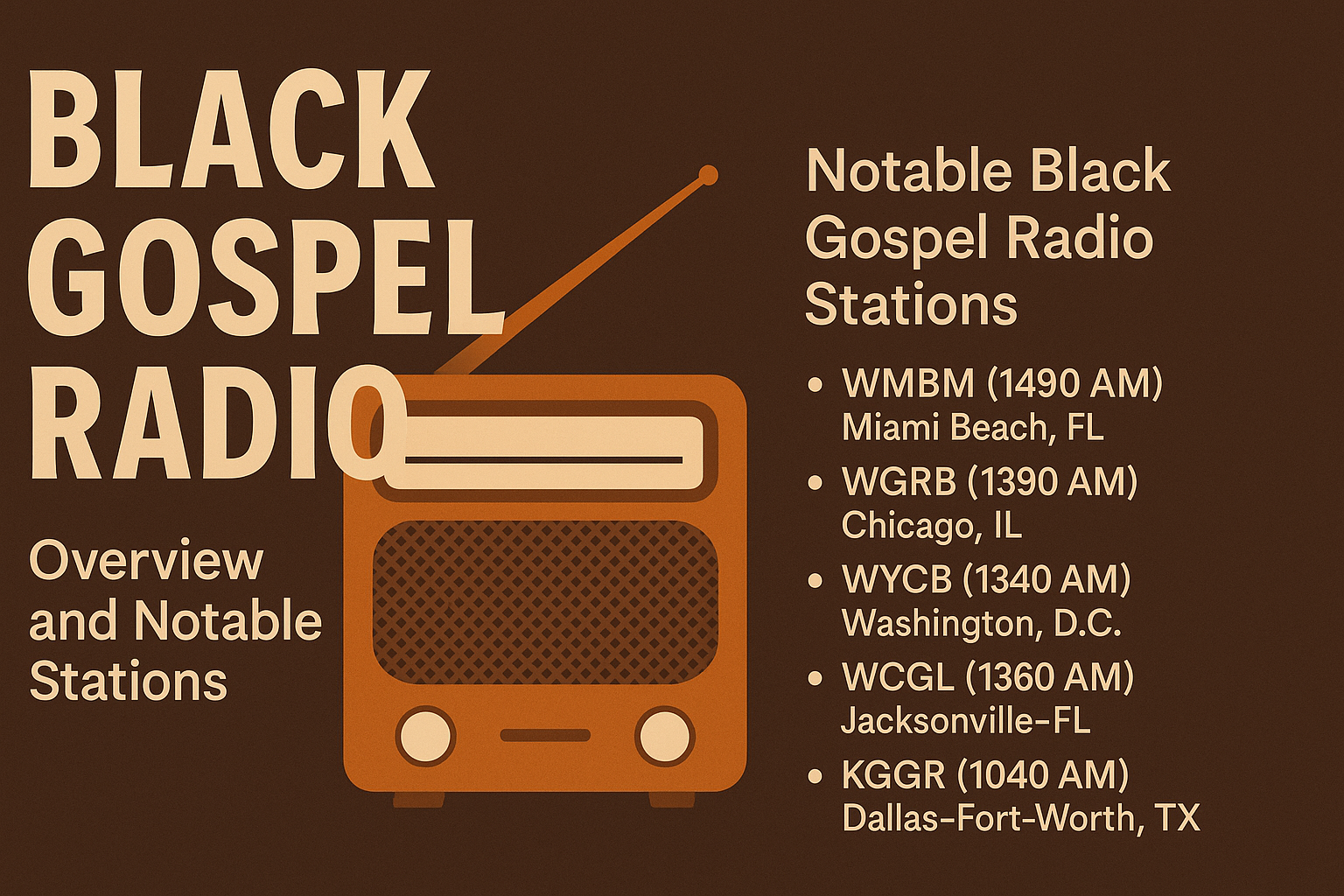Black Gospel Radio isn’t just a format on the dial — it’s a lifeline. Rooted in African American church traditions, it blends spiritual lyrics with soul feel, R&B grooves, and modern production polish. These stations sound like Sunday morning and Saturday night at once. They’re community hubs, tradition keepers, and frankly, culture engines across so many U.S. cities.
How It Started & Why It Still Hits
Mid‑20th century local radio serving Black audiences became the pipeline for sacred and gospel music. A real early light was Rev. Clayton D. Russell, the first Black gospel announcer in Los Angeles — on air as early as 1938, doing service‑minded broadcasts that ran for decades. That kind of consistency built trust and audience, brick by brick.
By the 1970s the sound kept branching. The Quiet Storm came out of Washington, D.C. — mellow soul with gospel‑inflected R&B. Not strictly gospel, sure, but you can hear the church in its bones. Scholars point out that Black‑oriented formats — gospel included — were crucial in bringing R&B and related styles into the mainstream from the ’70s on. Radio carried those voices farther than any tour bus could.
Notable Black Gospel Radio Stations
- WMBM (1490 AM) — Miami Beach, FL
Licensed in 1954, a major force for R&B, jazz, and gospel aimed at the Black community. Returned to a gospel format in 1995 and now airs urban gospel under the line “Where Ministry Blesses Many.” - WGRB (1390 AM) — Chicago, IL
On air since 1923 under various calls; adopted urban gospel in 1998. Today it’s “Inspiration 1390,” with church services and community programming every week. - WYCB (1340 AM) — Washington, D.C.
Broadcasting since 1978 and widely cited as the first contemporary gospel outlet in the U.S. Known as “Spirit 1340 AM,” owned by Urban One and rooted in gospel innovation. - WCGL (1360 AM) — Jacksonville, FL
Began in 1948; shifted in 1975 to “Victory AM 1360,” focusing on urban gospel music, ministry, and preaching content. - KGGR (1040 AM) — Dallas–Fort Worth, TX
Launched in 1947; adopted urban gospel in 1990. Branded as “Great Gospel Radio,” operating daytime on AM with FM translator support for reach. - KPRT (1590 AM) — Kansas City, MO
The city’s urban gospel voice since 1971, when it branched from KPRS to become “Gospel 1590.” Features 24‑hour contemporary gospel.
Digital & Internet Presence
Gospel didn’t stay stuck on AM dials. Online platforms now carry continuous gospel streams, from traditional quartets to modern praise & worship. Stations simulcast on the web, and dedicated internet channels — including branded “Black Gospel Radio” streams on major directories — keep the music rolling 24/7. It’s the same spirit, just a bigger room.
Cultural Significance
Black gospel radio has always been more than music. It’s announcements and prayer lines, local news, fundraisers, testimonies, and the gentle push that gets you through a rough week. It keeps spiritual traditions alive while giving new artists a door to walk through. The power is in how faith and heritage meet the microphone — it just resonates, simple as that.
There’s also a growing effort to surface voices long pushed to the margins. The legacy of Black LGBTQ+ contributors — think Sister Rosetta Tharpe’s genre‑blending fire or Rev. James Cleveland’s towering influence — is getting more daylight through community radio and academic work. That broader storytelling makes the whole picture truer, richer, and honestly, more moving.
Bottom Line
Black Gospel Radio carries community on its back — history, hope, and a very current sound. Whether you’re catching a local AM signal, a DAB/HD side channel, or a clean online stream on your phone, the heartbeat is the same. Songs that lift, hosts that care, and a tradition that keeps showing up when people need it most.

